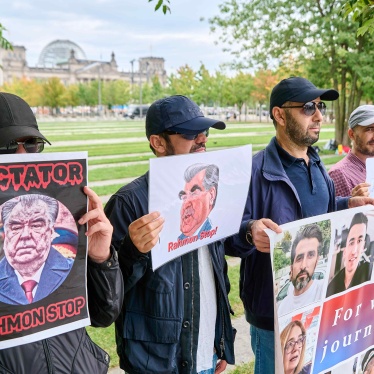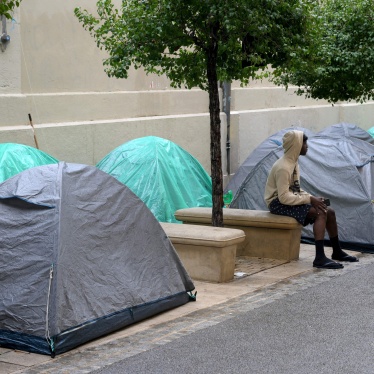Human Rights Watch welcomes the Universal Periodic Review of Malta which addressed a range of concerns, including immigration, rescue at sea, and detention of asylum seekers and children.
Automatic Immigration Detention Without Adequate Safeguards
Human Rights Watch welcomes that Malta has, as discussed through the UPR process, made considerable steps since the previous UPR towards improving its reception system for asylum seekers, including by making asylum accessible and improving conditions of detention. Yet we deeply regret that Malta continues to subject migrants and asylum seekers arriving by boat to automatic detention. While there are currently some limited paths available to challenge detention in Malta, these are insufficient to meet Malta’s legal obligations to avoid arbitrary detention.
In July 2013, the European Court of Human Rights issued two rulings which underscored the impermissible nature of Malta’s detention policy. In Suso Musa v. Malta(application 42337/12), the court made it clear that Malta must undertake general measures to reform the inadequate remedies to challenge the lawfulness of immigration detention. In Aden Ahmed v. Malta (application 55352/12), the court recommended general measures in relation to improving conditions of detention and to limit duration of immigration detention. The European Court of Human Rights denied Malta’s appeal in December 2013, leaving Malta with no further options than to implement these rulings.
In keeping with the European Court rulings, the recommendations made by numerous countries in the UPR process, and other distinguished human rights bodies, including the UN Working Group on Arbitrary Detention, Malta must end its practice of automatic detention and improve safeguards and conditions for those who are detained.
Treatment of Unaccompanied Migrant Children
We are heartened that Malta reiterated its commitment to prioritizing children in its human rights agenda and are likewise encouraged that certain unaccompanied migrant children are not subject to the detention requirement. Yet we are deeply concerned that Malta continues to detain all unaccompanied children for whom age is disputed pending age determination, and applies a very low threshold for disputing the age of children. As a result, unaccompanied children as young as 12 may be detained for weeks or months.
During detention, children are detained with adults, without any accommodation for their young age, and with no access to education. Once determined to be under 18—and released to other accommodation—children do not receive adequate legal representation. Under international standards, unaccompanied children should not be detained for reasons related to irregular entry, and pending age determination the person claiming to be a child should be treated as such.
Any period of immigration detention of unaccompanied children is unacceptable. International law states that unaccompanied children should not be criminalized for reasons related to their immigration status or illegal entry,[1]and the Committee on the Rights of the Child stated in its 2013 report following the Day of General Discussion on migrant children that detention of migrant children “contravenes the principle of the best interests of the child. In this light, States should expeditiously and completely cease the detention of children on the basis of their immigration status.”[2]
Malta should revise its age determination policies to give claimants the benefit of the doubt, treating them as children—and releasing them from detention—until found not to be children.
[1]UN Committee on the Rights of the Child, General Comment No. 6,para. 62.
[2]UN Committee on the Rights of the Child, Report of the 2012 Day of General Discussion on the Rights of All Children in the Context of International Migration, February 16, 2013, http://www2.ohchr.org/english/bodies/crc/docs/discussion2012/ReportDGDChildrenAndMigration2012.pdf, accessed February 20, 2013, para. 78.






